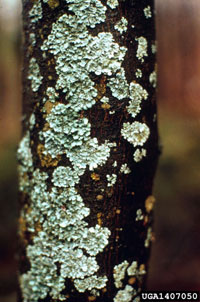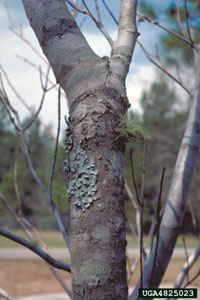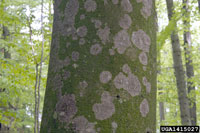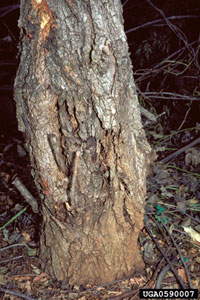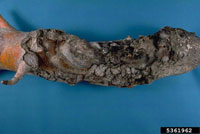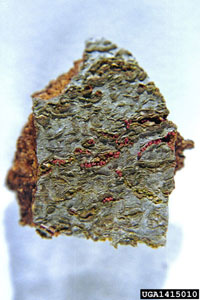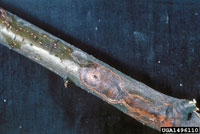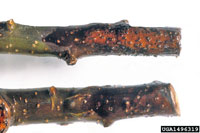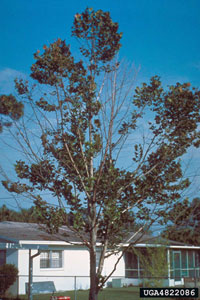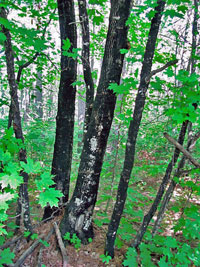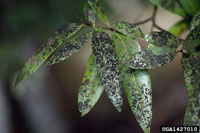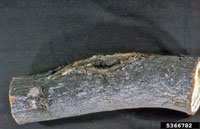Extension > Garden > Diagnose a problem > What's wrong with my plant? > Deciduous > Basswood/Linden > Unusual color on branch or trunk
Basswood/Linden > Trunk/Branches > Unusual color
1 of 4
Lichens
Several species
- Colorful patches on the bark of trunk and/or branches
- Can be wrinkled, in scalloped sheets, lace-like pads, bushy tufts, paint-like spots or splashes
- Forms can be flat against the bark surface or raised in leaf-like lobes, finger-like or hairy projections
- Colors may be shades of gray, green, blue, yellow, orange, or red
- More information on Lichens
2 of 4
Perennial nectria canker
Neonectria galligena
- Sunken dark brown cankers on main trunk or branches
- Cankers become crater like cavities with age
- Red to reddish orange raised cushion like bumps can occasionally be seen on the edge of the canker
- Dead branches and twigs killed by girdling cankers
- More information on canker
3 of 4
Branch cankers
Botryosphaeria obtusa and other fungi
- Cankers are brown to black sunken areas on branch that may have cracked bark and discolored sapwood
- Leaves on random branches wilt, turn yellow then brown during the growing season
- Random dead branches seen throughout canopy
- Infected branches don’t leaf out in spring
- Common on trees stressed by drought, winter injury, wounds, insect feeding or other factors
- More information on canker
4 of 4
Sooty mold
- Black, brown, or gray soot-like covering on leaf surfaces, or twigs
- Sticky, shiny secretions on leaves from sap-sucking insects (aphids, leaf hoppers, psyllids, etc.)
- Insects or signs of insect damage (distorted, pin-prick feeding marks, etc.) may be seen on leaves above the worst affected moldy areas
- More information on Sooty mold



